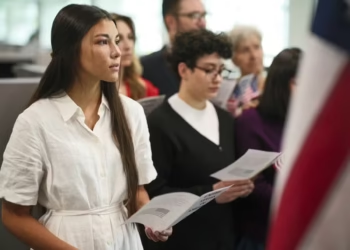LONDON (Realist English). The UK music industry contributed a record £8 billion to the national economy in 2024 — its highest level on record — according to the latest UK Music annual report, which represents key organisations including the BPI and PRS for Music. The figure marks a 5% increase from £7.6 billion in 2023, powered by major concert tours, growing music exports, and the continued rise of streaming revenues.
The report credits Taylor Swift’s Eras Tour and Take That’s stadium run among the year’s biggest economic drivers, generating income through ticket sales, tourism, and hospitality. The £8bn total also includes recorded music revenues — from physical and digital sales to licensing and brand partnerships.
British artists continued to thrive internationally, with Charli XCX’s “Brat summer” named one of 2024’s defining cultural moments. UK music exports climbed to a record £4.8 billion, also up 5%. Analysts expect the trend to continue in 2025, with global tours from Oasis, Coldplay, and Dua Lipa expected to further boost figures.
Foreign Secretary Yvette Cooper praised the results, describing music as “one of the most powerful expressions of our soft power in action.” She thanked the industry for “promoting British culture around the world” and highlighted the government’s £30 million Music Growth Package as part of its wider Soft Power Council initiative launched in January.
The sector also added 4,000 new jobs, bringing total full-time employment in music to 220,000. The number of active creators — musicians, songwriters, producers, and engineers — rose 2.9% to 157,800, though 43% reported earning under £14,000 a year from music-related income.
Tom Kiehl, chief executive of UK Music and a member of the 26-member Soft Power Council, welcomed the government’s recognition of the sector as “a high-growth industry,” but warned of serious challenges. “The government must be judged on progress in regulating artificial intelligence and reopening EU touring. On both fronts, the current situation works against the interests of music,” he said.
Post-Brexit restrictions on freedom of movement continue to strain UK musicians, with higher visa costs and customs bureaucracy making European tours significantly harder. A UK Music survey of 1,300 artists found many facing fewer performance invitations and declining royalties as a result of reduced activity across Europe. Musicians also reported growing delays and expenses for US touring visas.
UK Music is urging London and Brussels to negotiate a deal to remove visa and work permit barriers, simplify transport rules for instruments and equipment, and establish a reciprocal visa agreement with the US to reduce costs.
The report also warns of rising concerns over artificial intelligence, with fears that automated music production tools could threaten creative jobs and royalties. While most artists said they do not use AI — and never plan to — over two-thirds of producers reported they already employ or are open to adopting AI in their work.
Industry leaders say that while 2024 marked a record year for British music, safeguarding creators’ livelihoods and global mobility will determine whether the momentum can be sustained.


















